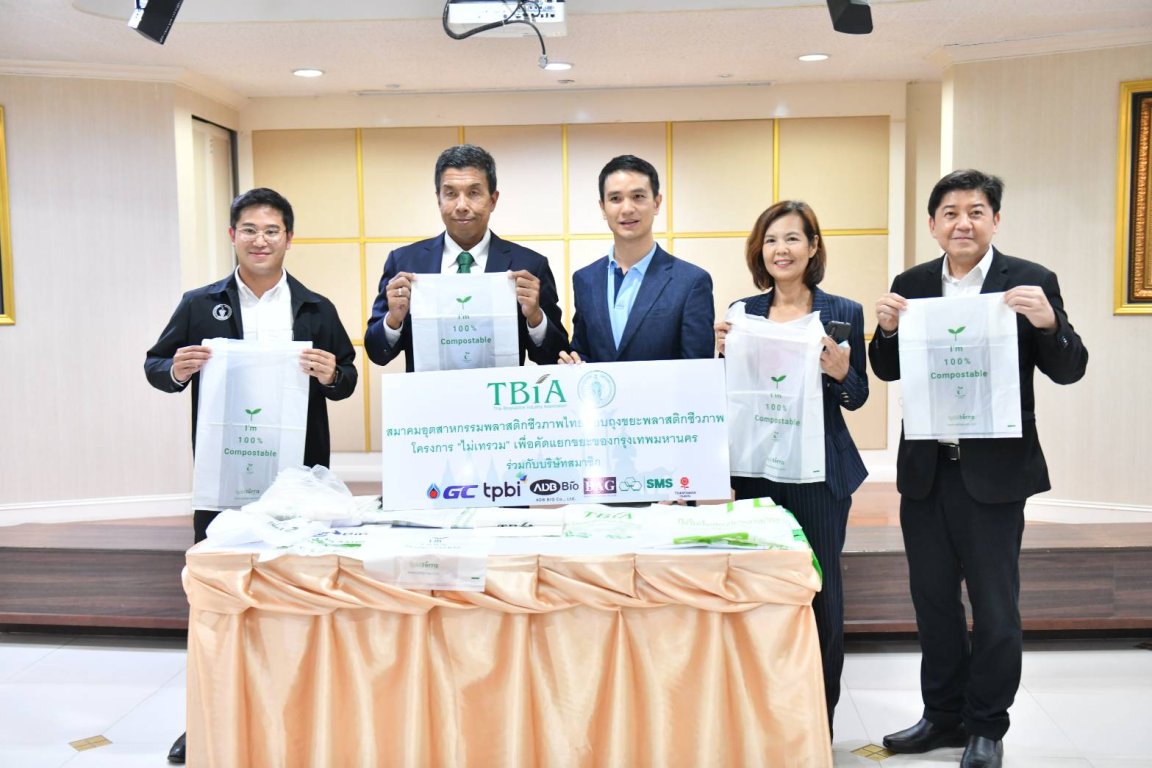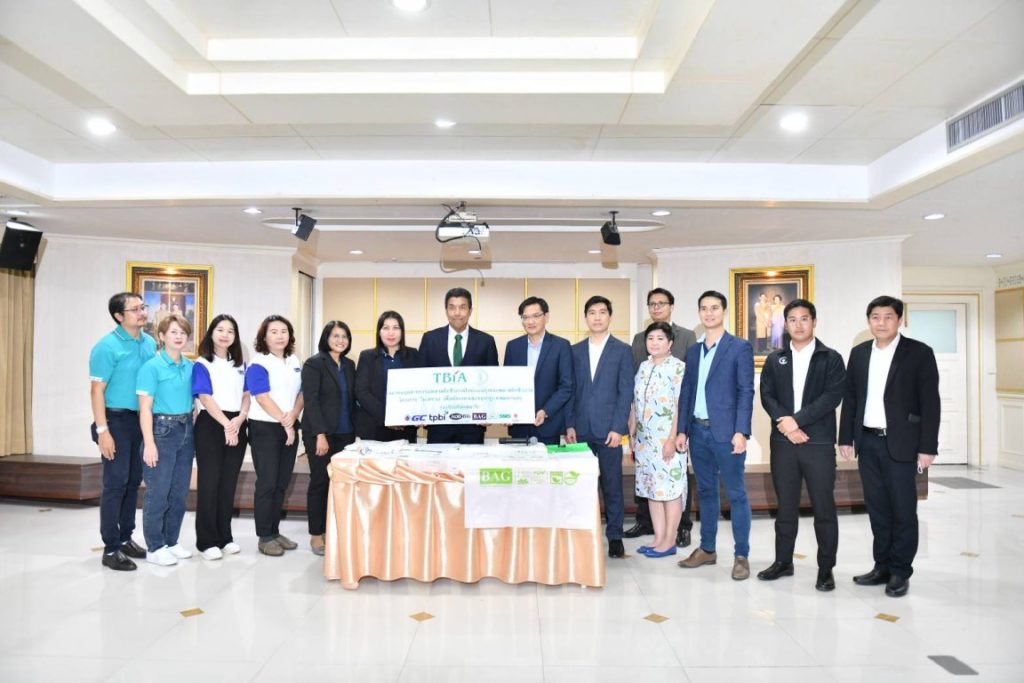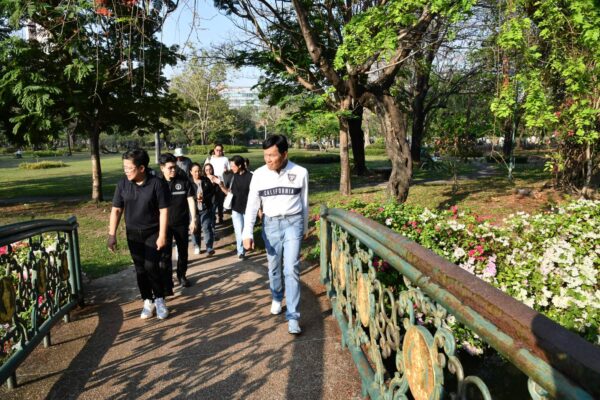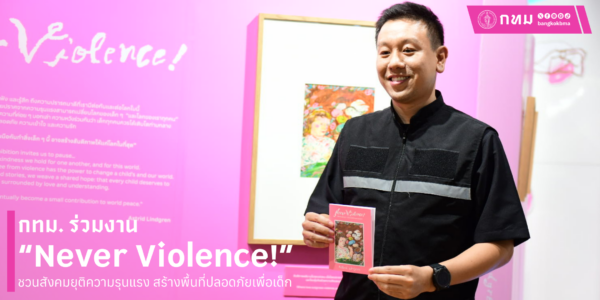
Bangkok’s new household-waste-separation scheme scaled up on Tuesday as city governor Chadchart Sittipunt took delivery of 40,000 biodegradable bags.
The special bags were delivered by the Thai Bioplastics Industry Association (TBIA) to be used in the city’s “Mai Te Ruam” (Do not mix food waste) campaign.
Chadchart said households in three pilot districts of Phya Thai, Pathum Wan and Nong Khaem can ask for the bags via the city’s Traffy Fondue platform.
About 30-40% of the city’s trash every day is food or organic waste.
The governor promised to expand the campaign to separate organic waste to all 50 districts of the city soon. The separated food/organic waste can be turned into biofertiliser or biofuel to boost sustainability.
BMA is considering offering discounts on garbage collection fees for households that separate their waste to reward the practice and attract new participants, said Chadchart.
TBIA, which represents over 60 firms and agencies in the bioplastics sector, said the bags handed to BMA will decompose naturally without polluting the environment with microplastics. Time needed for decomposition varies depending on moisture, temperature and microorganisms, it added.
“Biodegradable plastics are mainly made from agricultural byproducts such as tapioca and sugarcane, which have been processed into bioplastic called polylactic acid or thermoplastic starch, which can decompose in nature in a short period,” said a TBIA representative.




